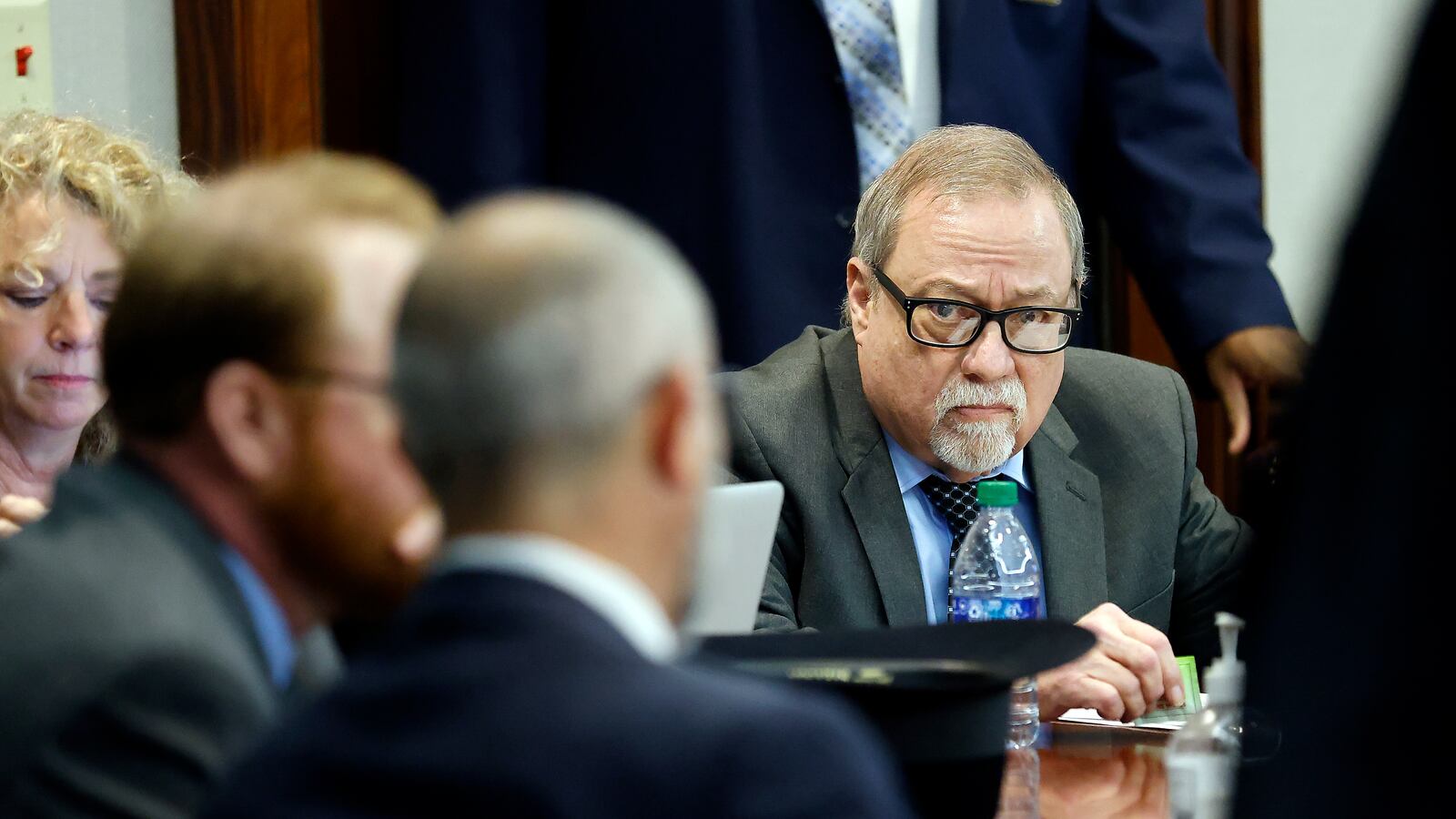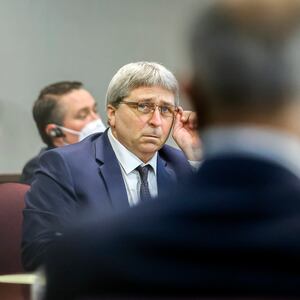To prove the three white men who murdered Ahmaud Arbery were not motivated by racism, their defense teams called a collective total of one witness: a random neighbor who did not know the trio.
Lindy Cofer, a 48-year-old resident of Satilla Shores—the Georgia neighborhood where the 25-year-old Black man was chased and shot to death in 2020—was called on behalf of Greg McMichael.
Along with his son Travis (who fired the fatal shots) and their neighbor, William “Roddie” Bryan (who joined the chase), McMichael was convicted in state court of murder. Prosecutors successfully convinced a jury that the men wrongly suspected Arbery of theft and killed him in cold blood while he ran on the street.
Now the trio faces federal civil rights charges in connection with their rogue vigilantism. And Cofer appeared to be Gregory McMichael’s legal team’s attempt to show his vigilantism was color blind.
Her brief testimony focused on a white man she saw under the Fancy Bluff Bridge who was suspected of possible thefts in the area years ago. McMichael, a former cop and investigator for the local district attorney, saw the same man months after Cofer—and called 911 to report him, his defense team said.
However, Cofer admitted that she did not know whether the man McMichael saw was the same as the one she saw under the bridge. She also noted that she did not know McMichael or his co-defendants.
Cofer’s bizarre testimony, which allowed the defense to play McMichael’s 911 call to the jury, represented an attempt to push back on evidence that Gregory McMichael had expressed racist sentiments in the past.
No witnesses testified for the younger McMichael or Bryan, and the three defense teams rested their cases after Cofer’s testimony.
The men face several federal charges, including interfering with Arbery’s right to use a public street because of his race, and kidnapping. The McMichaels, who had initially agreed to plead guilty in a deal that was ultimately rejected by a judge, are also facing a count of using a firearm during the violent crime. All three men have pleaded not guilty.
Throughout the trial, prosecutors have argued that Arbery’s killing, which has been described as a modern-day lynching under the guise of vigilantism, was the result of deadly assumptions made based “on the color of his skin.” To prove their point, the government called 20 witnesses over four days to paint a picture of racist behavior by the trio.
Witnesses included Travis McMichael’s former colleague, who testified he used a racial slur to describe a man she was dating; a former friend of Gregory McMichael who said the former cop went on an anti-Black rant while he was taking her and her daughter to the airport in 2015; an FBI agent who spoke about the trio’s bigoted online history; and investigators who spoke to the men after Arbery’s death.
“Full moon brings out the worst of those savages I guess. I hate those bastards. They ruin everything,” Travis McMichael allegedly messaged a friend about Black people two months before he fatally shot Arbery.
Carol Sears, a New York real estate agent, testified about a negative comment Gregory McMichael made after the 2015 death of Julian Bond, a Black civil rights activist and former Georgia state representative.
“I said, I just heard he had passed away and I feel terribly,” Sears told the jury. She said that McMichael responded in outrage, saying “Bad?! I wish he'd been put in the ground years ago. He’s nothing but trouble. Those Blacks are nothing but trouble.”
“Then he went on this rant about Black people. It was terrible and had such meanness and ugliness about a whole race of people,” Sears added.
FBI Intelligence Analyst Amy Vaughan also showed jurors evidence of racism by Bryan, including messages he allegedly sent after learning his daughter was dating a Black man just days before Arbery’s murder.
“She has her a [n-word] now. I've been calling it for a while. Not surprised,” Bryan allegedly said about the situation to another person later that day. In another message, Vaughan said on Wednesday, Bryan called his daughter a “sociopath” for her dating choices.
Defense attorneys for the trio told jurors during opening arguments that their clients may have concerning internet history, but that does not necessarily mean their actions were motivated by racial animus. During the state trial, the defense teams argued that the incident was simply a citizen’s arrest gone wrong.
Closing arguments for the federal trial will begin on Monday morning.






